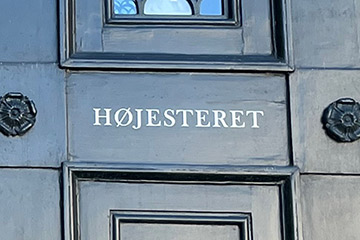The EU Court of Justice once again disqualifies Danish tax legislation
21 December 2016
Yesterday, in a case of general public interest, the Court of Justice of the European Union ruled in favour of Masco Denmark ApS and Damixa ApS, establishing that section 11(6) of the Danish Corporation Tax Act on tax exemption for group related interest income is in conflict with EU law as the provision only applies in respect of interest paid by a Danish company. The case was conducted by Plesner in cooperation with PwC.
According to the Danish Corporation Tax Act section 11(6), a company shall be allowed tax relief in respect of interest received from an affiliated company which is unable to deduct the interest in question as a consequence of the company being thinly capitalised. The rule was introduced in connection with the rules on thin capitalisation being extended to also include purely national inter-company loans for the purpose of ensuring symmetry in the taxation within a group.
The tax exemption only applies, however, if the affiliated borrowing company is resident in Denmark.
In the case in question, a Danish parent company had granted large loans to its financially distressed German subsidiary, and the German subsidiary thus incurred loan interest to the parent company. The German subsidiary had negative equity and was thus thinly capitalised. As a consequence of the German rules on interest deduction limitation in cases of thin capitalisation, which are very similar to the Danish rules, the German subsidiary could not deduct the interest in question. On the contrary, the Danish parent company was taxed on the interest income, and an asymmetrical taxation consequently arose in the group.
During the case, the company argued that the Danish rule is in conflict with the EU Treaty's provision on freedom of establishment as it does not apply in cross-border situations. It is thus discriminatory.
Advocate General Kokott disagreed on this, as she in her Opinion of 12 May 2016 determined that the rule could be defended, inter alia, with a reference to the principle on autonomy, i.e. that a Member State is not required to adapt its legislation to the legislation of another Member State.
The EU Court, however, disagreed with the Advocate General (and the Danish State) and concurred in the company's argument that the case was not about Denmark having to organize its legislation according to the German legislation, but about Denmark already having enacted tax legislation, which Denmark was required to apply also in comparable cross-border situations within the EU.
The EU Court clearly states that the Danish rule constitutes a restriction for companies' freedom of establishment within the EU, that it in principle can be justified on grounds of ensuring a balanced allocation of taxation powers, but that it goes beyond what is necessary why it is in conflict with the Treaty.
The case must be expected to result in an amendment of Danish tax legislation so that it is in line with EU law, as well as other companies that have been taxed in similar circumstances must be expected to be able to have their tax assessments reopened. The case in question concerned taxation in the tax years 2005 and 2006, why reopening back to the tax year 2006 in principle should be possible.
Read the judgment here
The tax exemption only applies, however, if the affiliated borrowing company is resident in Denmark.
In the case in question, a Danish parent company had granted large loans to its financially distressed German subsidiary, and the German subsidiary thus incurred loan interest to the parent company. The German subsidiary had negative equity and was thus thinly capitalised. As a consequence of the German rules on interest deduction limitation in cases of thin capitalisation, which are very similar to the Danish rules, the German subsidiary could not deduct the interest in question. On the contrary, the Danish parent company was taxed on the interest income, and an asymmetrical taxation consequently arose in the group.
During the case, the company argued that the Danish rule is in conflict with the EU Treaty's provision on freedom of establishment as it does not apply in cross-border situations. It is thus discriminatory.
Advocate General Kokott disagreed on this, as she in her Opinion of 12 May 2016 determined that the rule could be defended, inter alia, with a reference to the principle on autonomy, i.e. that a Member State is not required to adapt its legislation to the legislation of another Member State.
The EU Court, however, disagreed with the Advocate General (and the Danish State) and concurred in the company's argument that the case was not about Denmark having to organize its legislation according to the German legislation, but about Denmark already having enacted tax legislation, which Denmark was required to apply also in comparable cross-border situations within the EU.
The EU Court clearly states that the Danish rule constitutes a restriction for companies' freedom of establishment within the EU, that it in principle can be justified on grounds of ensuring a balanced allocation of taxation powers, but that it goes beyond what is necessary why it is in conflict with the Treaty.
The case must be expected to result in an amendment of Danish tax legislation so that it is in line with EU law, as well as other companies that have been taxed in similar circumstances must be expected to be able to have their tax assessments reopened. The case in question concerned taxation in the tax years 2005 and 2006, why reopening back to the tax year 2006 in principle should be possible.
Read the judgment here







